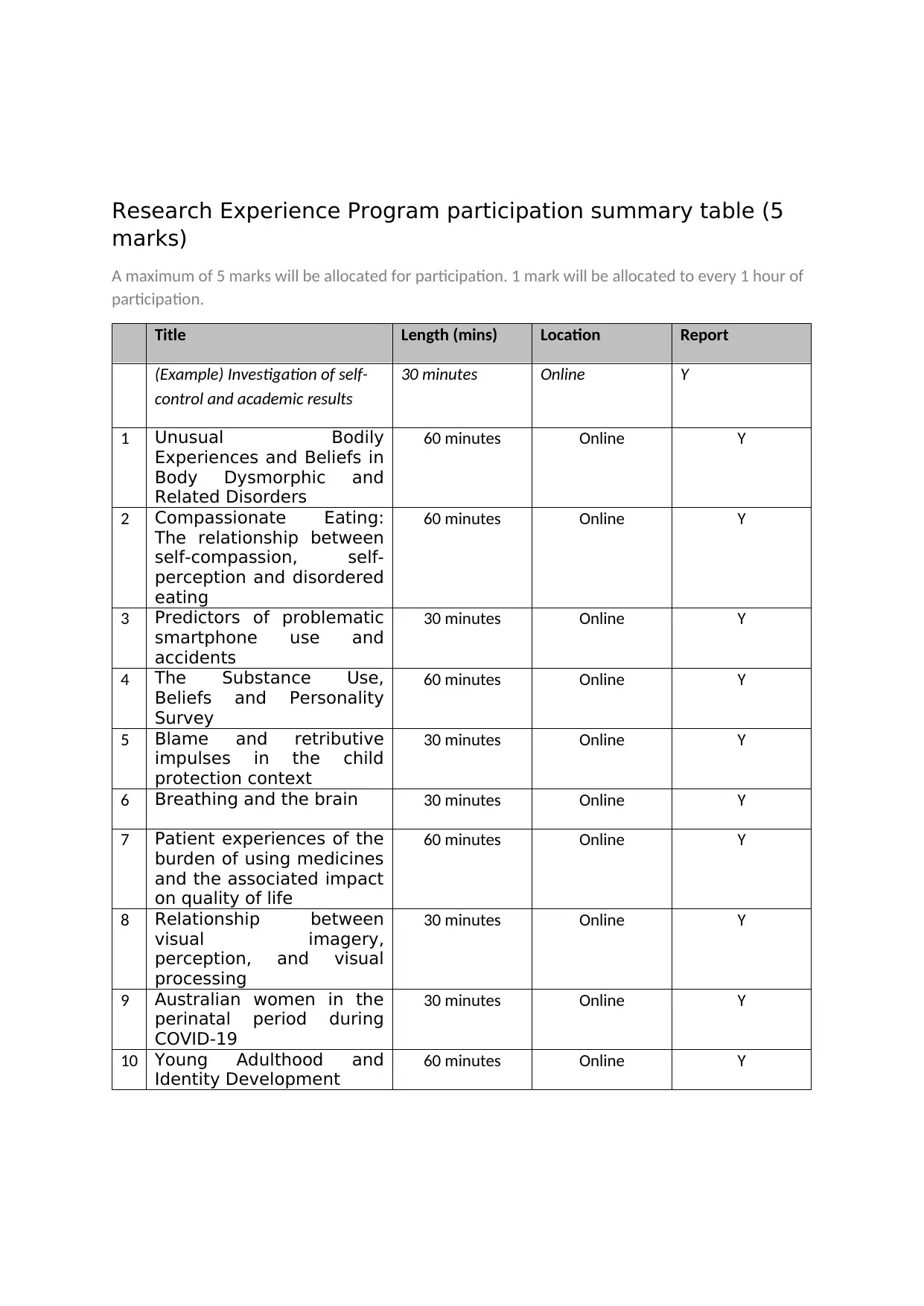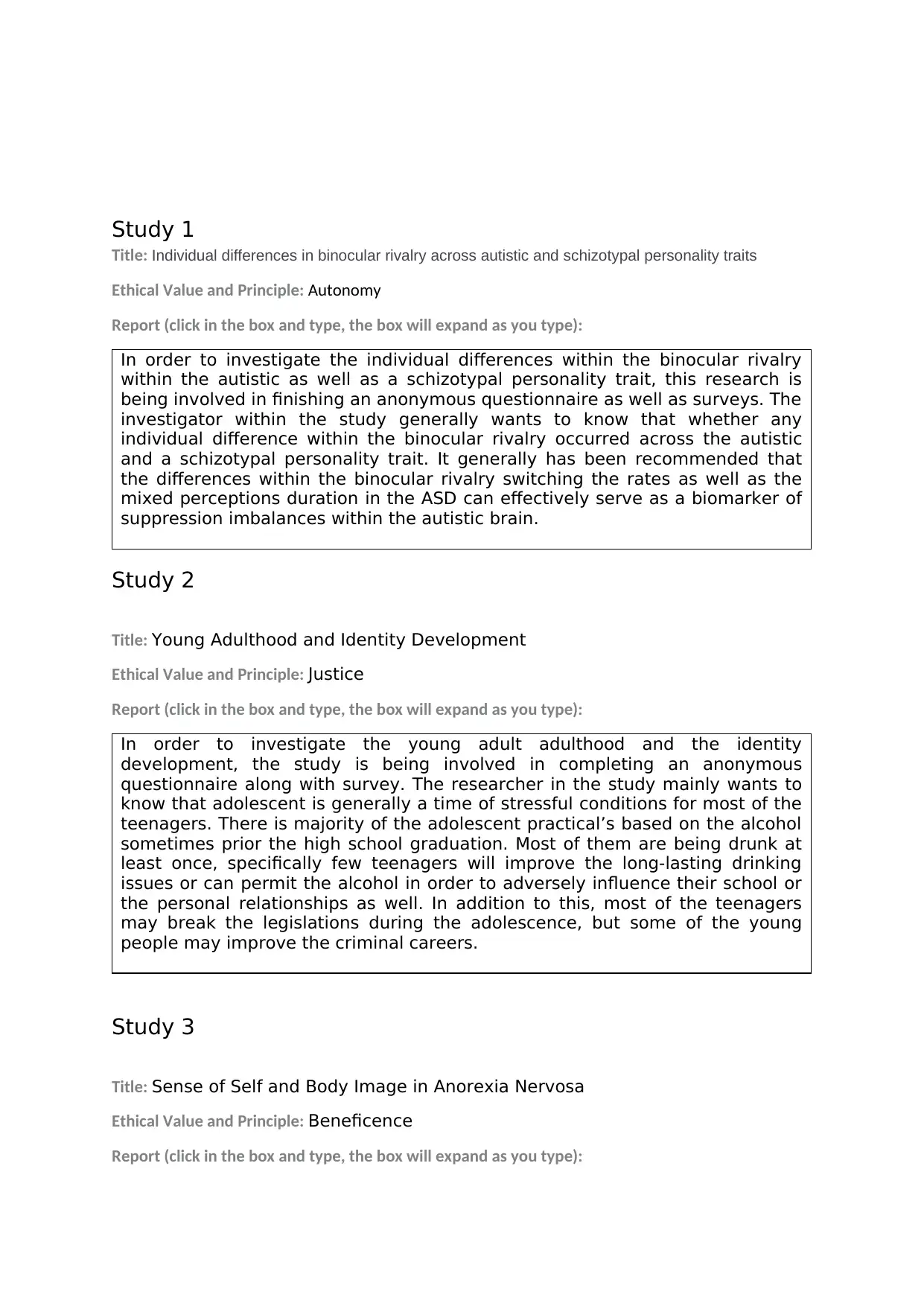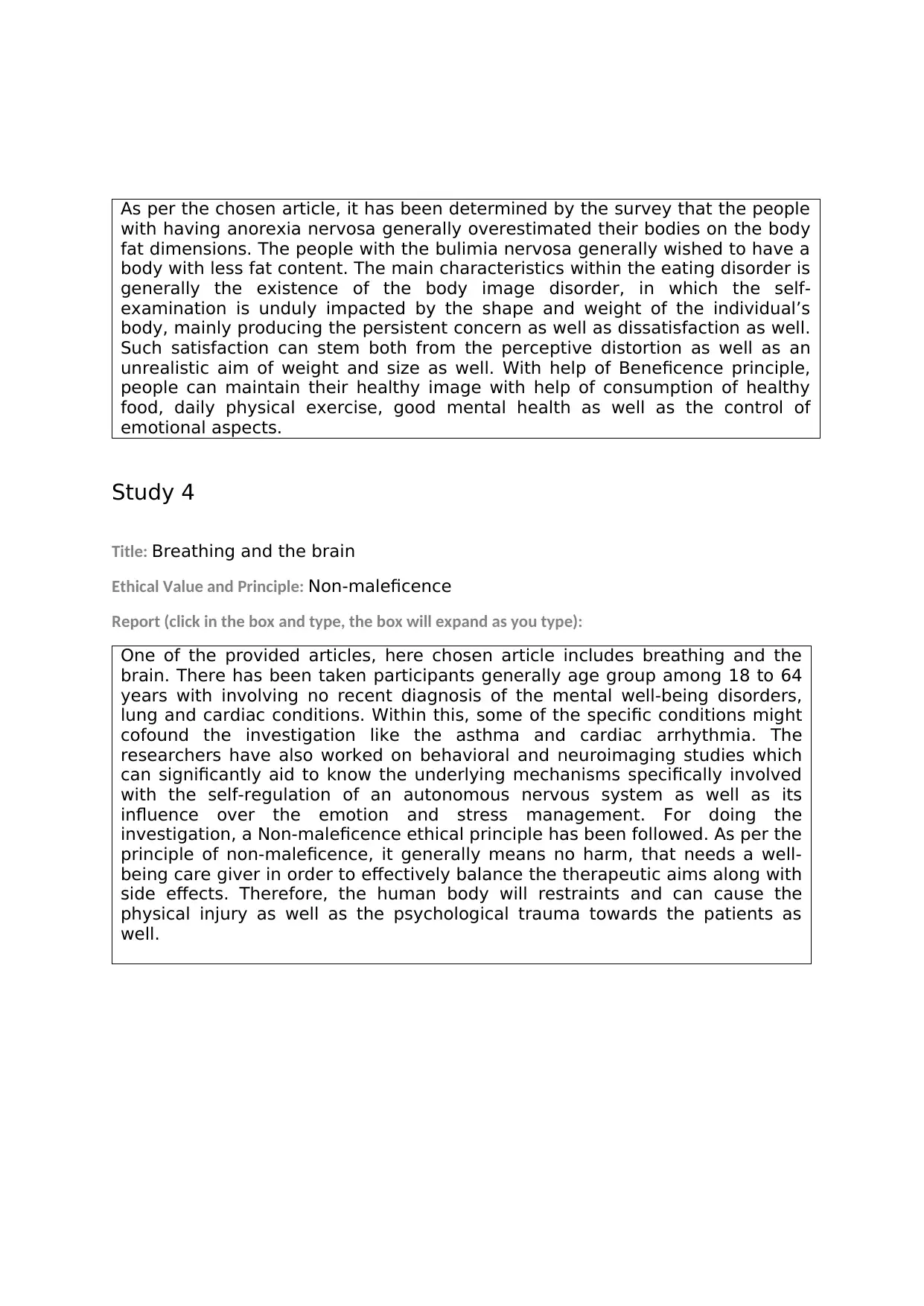Research Ethics: Participation Summary & Application of Principles
VerifiedAdded on 2023/06/04
|4
|909
|140
Report
AI Summary
This report details participation in a research experience program, summarizing several studies and their alignment with ethical principles. The first study investigates individual differences in binocular rivalry related to autistic and schizotypal traits, emphasizing autonomy through anonymous questionnaires. The second study examines young adulthood and identity development, focusing on justice and addressing stressful adolescent experiences like alcohol use and legal issues. The third study explores sense of self and body image in anorexia nervosa, utilizing the principle of beneficence to promote healthy body image through diet, exercise, and mental health. The final study considers breathing and the brain, adhering to non-maleficence by excluding participants with mental health disorders or cardiac conditions to avoid harm during neuroimaging studies. This research aims to understand the self-regulation of the autonomous nervous system and its impact on emotion and stress management, ensuring participant well-being throughout the investigation. Desklib offers a wealth of resources for students, including past papers and solved assignments.
1 out of 4





![[object Object]](/_next/static/media/star-bottom.7253800d.svg)